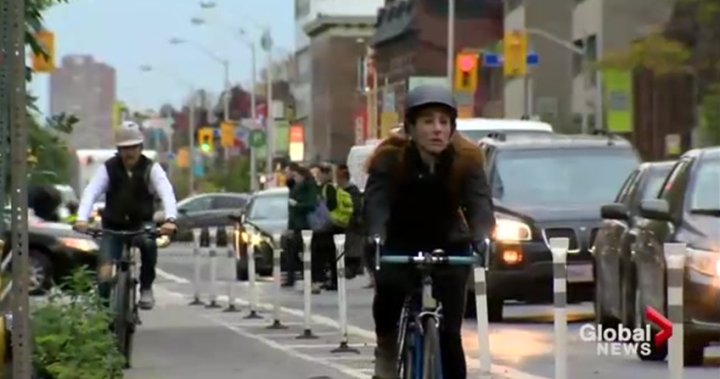embedded machine learning research engineer - georgist - urbanist - environmentalist
- 59 Posts
- 123 Comments

 34·4 months ago
34·4 months agoAnd things like vertical bifacial solar panels can work especially amazingly on grazing land that isn’t suitable for crops.

Counter-intuitive as they may look, they actually have a number of benefits:
- The panels face east and west, meaning they generate peak power in the morning and evening, which corresponds to peak demand => less need for energy storage to bridge the gap between the mid-day peak in production from traditional PV and the aforementioned morning and evening demand peaks.
- The panels are vertical, which makes them easier and cheaper to maintain, as dust, snow, and rain naturally shed from their surfaces.
- The panels get less direct energy during mid-day, keeping their surfaces cooler. Turns out cooler solar panels are more efficient at converting light energy into electrical energy.
- The arrangement lends itself very naturally to agrivoltaics, which means you can derive more yields from a given piece of land and use less land overall than if you had segregated uses.
- The compatibility with agrivoltaics allows farmers to diversify their incomes streams and/or become energy self-sufficient.

 9·5 months ago
9·5 months agoThe problem is tons of free parking everywhere needlessly sprawls out our cities, makes people drive further, and makes actual green methods of transit (like walking, cycling, and electrified public transit) less viable.
In the long term, maintaining car dependency is fundamentally incompatible with addressing the climate crisis. Removing mandatory parking minimums is a necessary step towards ending car dependency.

 131·6 months ago
131·6 months agoExactly. I’m just trying to reframe dumb NIMBY policies like restrictive zoning and mandatory parking minimums as anti-freedom so as to try to get conservative NIMBYs to maybe be just a little less NIMBY.
Absolutely no one is seriously arguing we allow PFAS chemical plants next to kindergartens or that we remove all building safety codes. Just that restrictive zoning (and other NIMBY land use policies) is stupid, harmful, and we should get rid of it.

 12·6 months ago
12·6 months agoThe right to a bicycle shall not be infringed

 4·6 months ago
4·6 months agojust a frame, a chain,
two wheels, and grease

 78·6 months ago
78·6 months agoExcellent point, brother. Always choose AMERICAN MUSCLE over COMMIE OIL.

 6·7 months ago
6·7 months agoThat’s actually the neat thing about land value taxes; both in economic theory and observed practice, they can’t be passed on to tenants.
It would absolutely be a boon for the poor if we replaced other forms of taxation (such as on sales and income) with land value taxes. Plus, land value taxes tend to make housing cheaper, which helps the poor as well.

 131·7 months ago
131·7 months agoExactly. People love to treat it as “a war on cars/lawns/etc.”, but it’s really a war on everybody who doesn’t want to be legally mandated to have those. All we’re asking for is to end the legal mandates (zoning, parking minimums, setback requirements, etc.) and for those who wish to partake in those wasteful luxuries to pay their true price without public subsidy.

 13·7 months ago
13·7 months agoTbh, my favorite kind of gardening is the kind that thrives on neglect. I love making ecosystems that thrive on their own, without my constant input. There’s just something beautiful about seeing life thrive on its own.

 2·7 months ago
2·7 months agoYou might like single transferrable vote (STV), then. You have districts with several seats in them (preferably ~5), and then do a ranked-choice ballot to select the candidates who will fill those seats. Key advantages over proportional representation are that it maintains the idea of a constituency and that it maintains voting for individual candidates, not just parties.
Downside, of course, is that it’s not as proportional as proportional representation, but it still achieves pretty proportional results. That’s the tradeoff for maintaining constituencies and individual candidates.

 10·8 months ago
10·8 months agoHow do so few people in this comments section see the obvious satire?? It’s clearly making fun of both landlords and absurd tipping culture.

 3·8 months ago
3·8 months agoNon-paywall link: https://archive.is/psmPE

 34·8 months ago
34·8 months agoIf they help to get people out of cars (including electric cars), I see them as a win. Orders of magnitude less impactful than cars.
I agree that I think worker coops elegantly solve certain problems (notably the principal-agent problem), but they also have certain drawbacks. Notably, they have more difficulty raising funds, they tend to be more risk-averse, they tend to be more growth-averse (people don’t like to dilute their own stake within the company with more people, but this means they don’t typically scale as easily or quickly to benefit economies of scale), and they tend to pay worse than hierarchical companies (counterintuitive as that may seem at first if the whole goal of market socialism is to have workers get more of their value back).
So is the solution to just throw our hands up and say, “Screw it, nothing we can do but let hierarchical organizations win”? Not quite. We still do see plenty of successful coops, notably in the form of credit unions. We also have unions and syndicalist solutions. We still have minimum wages (which are supported by most economists, as it turns out you can raise minimum wages a certain amount without raising unemployment because there’s often a non-zero amount of monopsony power in the labor market).
Further, I do think a Georgist system would empower labor much more than now. Without a housing crisis (thanks to LVT and YIMBYism), with a citizen’s dividend, with quality public education (education has positive externalities and thus deserves a Pigouvian subsidy), with more jobs (thanks to more economic growth and less rent-seeking), and with public works projects (essentially Pigouvian subsidies for things like environmental cleanup), I think labor would have much more bargaining power with employers.
For instance, the professional class right now gets good pay and generally good quality of life , despite rarely having unions or worker coops, precisely because they have high negotiating power with prospective employers.
My inclination is to strive for a more Georgist system, encourage unions, use minimum wages and government spending technocratically, and then see if more is yet needed.
But society already values flexibility as well. As a basic example, I was hired in my current job in large part because I have a relatively broad range of skills within my field, rather than being hyper-specialized in one particular thing. Sure, in an abstract world where replacing employees is frictionless and firms are all megacorps with tens of thousands of employees (or more), tremendous specialization would probably be more commonplace. But in our real world, companies value flexible employees who can respond to changing projects, requirements, conditions, etc., because just firing and hiring a new specialist costs times and money, and many companies (startups especially) can’t afford having thousands of specialists in every niche they touch upon.
Further, even specialists have to communicate and collaborate with other specialists, and they need to be able to understand each other well enough to do so. If you wanted to build robotics to pick tomatoes automatically, for instance, it would be ridiculous to hire one tomato farmer and one roboticist who know nothing about each other’s respective specializations. If neither has any flexibility or breadth of knowledge, it will be very difficult for them to communicate and collaborate to get the project working.
People live in an artificial binary where they believe communism and capitalism are the only two economic systems in the entire world.
I’ll be bold and say it outright: communism is a fundamentally broken idea and sucks balls, and so is capitalism, but both in similar-yet-different ways.
Communism is faulty economics and fails to differentiate between man-made capital and god-given land and natural resources, grouping both as “the means of production”. The problem with this is land and capital have very different properties. Where land (and natural resources) cannot be created and are zero-sum, capital must be created and is not zero-sum. Communism blatantly ignores this and has a zero-sum view on capital, meaning it suggests policies that fail to effectively produce new capital, and thus fail to effectively produce new wealth and prosperity. Further, when the state takes monopolistic control over land and capital (in addition to its existing monopoly on violence), it concentrates far too much power, which is why communist countries keep on becoming brutal dictatorships.
Capitalism, on the other hand, also fails to differentiate between land and capital, but in a different way. Instead of socializing both, it privatizes both, allowing massive rent-seeking and exploitation as a result of monopolization of land and natural resources. It also often willfully ignores that negative externalities and other market failures actually make society, on the net, poorer and less prosperous. Further, this concentration of wealth into the rent-seeking, monopolist class grants them more political power to make it even easier to rent-seek, further concentrating their own power and wealth.
What I want instead is a Georgist system that correctly identifies this distinction between land and capital, and then uses economically proven policies that respect the inherent differences between land and capital.

 0·9 months ago
0·9 months agoThey’re not a solution simply because they’re still cars, and therefore take up the same grossly excessive amount of space as non-autonomous cars do.
Yeah, the only things autonomous cars might reduce are:
- Parking, but only if we forego our current private ownership model and everyone starts doing self-driving robo-taxis everywhere (unlikely)
- Road fatalities, but only if the self-driving tech proves statistically better than human drivers in a wide range of conditions (jury is still out)
It’s the same fundamental problem that electric cars have: geometry. Cars – even if electric and self-driving – are simply grossly inefficient at moving people for the amount of land they require:


 1·9 months ago
1·9 months agoThis is basically how I like to put it:






Some squatter who bought the rights to it for two twigs and a raspberry back when they were first selling off name rights 200,000 years ago